Refugees and locals learn to live together in Swiss town
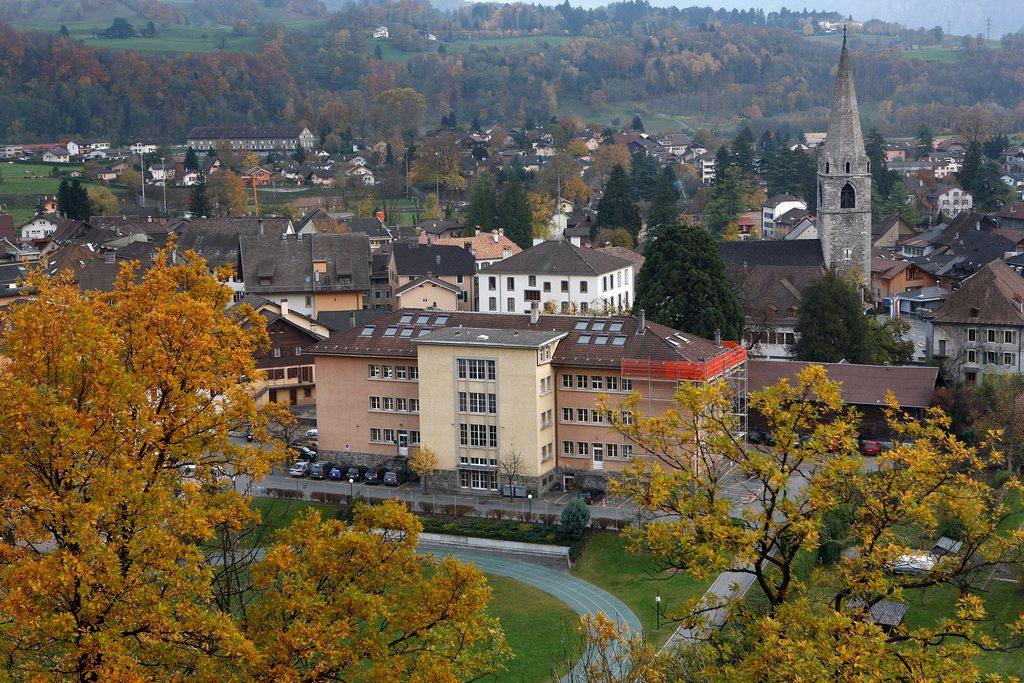
If you check a map, you might think that Bex - pronounced without the X - is just a sleepy Swiss town known mostly for its salt mines. Look a little closer and you will see an African shop in the centre of town and faces of many colours on the street.
This small town was one of the first places in the region to have an asylum-seekers’ centre – since 1982 – and some 33% of its 7,731 population are foreign, which is above the national average. So does it hold some lessons for elsewhere in terms of living together?
“I have nothing against refugees, but we are a small town and many have been imposed on us when towns along the Lake [Geneva] don’t want them,” says one elderly resident who has lived in Bex all her life and preferred not to be named. “It’s too much. Sometimes when you step out on the streets, you wouldn’t even think you are in Switzerland. We are at the bottom of the canton, it’s like we are the dustbin.”
Coming by train from Lausanne, you reach Bex after glittering Lake Geneva has disappeared and you enter the Rhone valley with high mountains on both sides. When you arrive in the town, the mountains are all around. There is an industrial zone, some services, shops and restaurants in the centre. Bex also has tourism potential because of the scenery and the salt mines. Around the railway station, the area looks as if it could do with some development.
Walking towards the centre of town, which has some picturesque old buildings, there is a group of schoolchildren coming down the road – black and white children with their arms round each others’ shoulders. They don’t seem to have a problem getting along.
A troubled past
There was high tension between communities in Bex especially in 2005-2006. Municipal secretary Alain Michel remembers it well. “The problem was mainly the presence of drug dealers,” he says. “The population did not like seeing African dealers on some streets. In 2006 we had a massive police operation… and we also had a person who painted racist graffiti on walls, which caused some disturbance. But it was not the people in the asylum centre that were causing the problem. The danger stemmed from the fact that the population made an association between the refugees in the centre and these people who came to deal drugs on the street.”
At that time there was an initiative by the conservative right Swiss People’s Party to have the asylum seekers’ centre closed. It had support from the population at the time but was rejected by the cantonal authorities. The People’s Party currently has only 11 of the 60 seats on the municipal council, which is fairly evenly split between left, right and centre. Seats include 13 for the home-grown “Avançons” party (centrist) formed in 2009, which says it wants to break the left-right divide and develop Bex.
The drug problem has been stamped out, and lessons have been learned from that period. But there can still be tensions from time to time. One of the problems, according to Michel, is that if there is a sudden influx into a building of people from a different culture “there are problems of understanding and adaptation, and that can cause difficulties.”

Lukembisa Kapela, originally from what is now the Democratic Republic of Congo, has been living and working in Bex for many years now and seems to have made a success of integration. He fled Mobutu’s Zaire for Switzerland in 1984 because of its “reputation as a host country” and landed in Bex because of a job opportunity. He says working hard, riding his bike to work early and playing for the local team in the national football league helped his acceptance into the community. He married a Swiss woman, founded a family in Bex and obtained Swiss nationality. Kapela says he now feels “both Congolese and Swiss”.
But he does not think the situation between locals and asylum-seekers in Bex is perfect. “Some people say to me ‘look at them [people from elsewhere]… fortunately there are people like you’”. What bothers these residents most, he says, is that asylum-seekers “hang around and don’t work”.
Many refugees and migrants want to work and can’t find it. Plus there is competition for employment. “Finding small jobs is already what our student children want, and people from the European Union, so I think it is very difficult for them,” says Anne-Catherine Rohrbach, head of the Bex Refugee Support Group (GARExternal link).
The problem of work
“There are many who have gone into depression because of this,” Rohrbach told swissinfo.ch, “particularly the men, because it is not in their culture to stay at home.”
Mahmoud Malas from Syria went through this. “Staying at home is death,” he told swissinfo.ch.
But like Kapela, he “got on his bike”, seeking employment anywhere, and now works at a pastry shop with his wife Hana, selling Middle Eastern specialities in the nearby town of Montreux.
He and his wife Hana Kaourdi did not choose to come to Switzerland. Here’s his story.
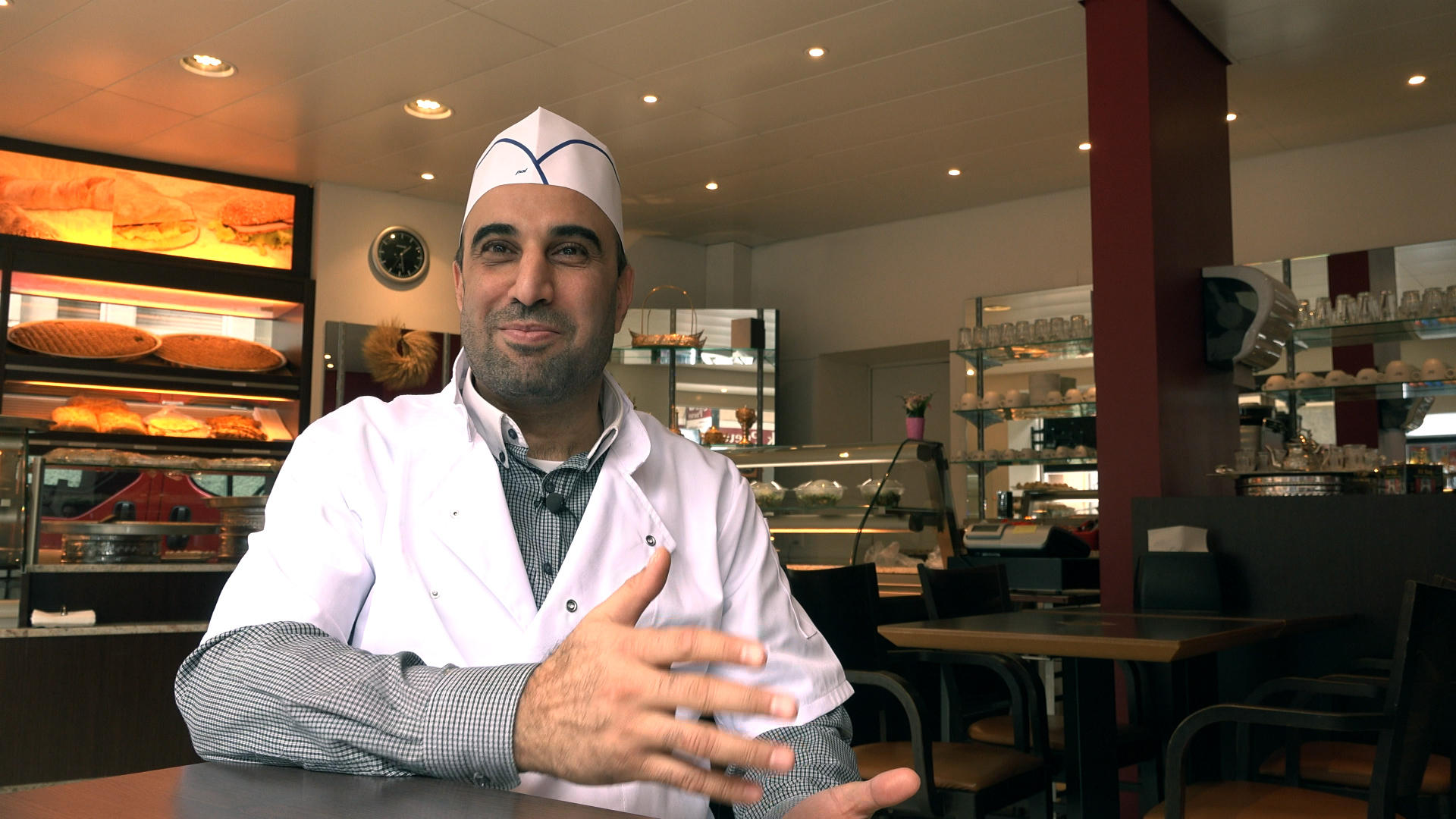
More
From Damascas to Bex: a patissier’s story
Finding work is often linked to how fast and how well you can learn the local language [French in canton Vaud], and what kind of residence permit you get, as well as whether your skills are recognized in Switzerland.
People are granted different permits according to their refugee or asylum status, and in some cases not allowed to work at all.

More
A life in limbo for Switzerland’s F permit holders
The first challenge is often language. “I remember crying in class, because I didn’t understand,” says a young Eritrean woman whose family fled that country’s dictatorship when she was 15 and preferred not to be named. “And I said to myself, I have to learn French to move forward.” She now speaks perfect French and is training to be a nurse.
But her father is still without a job, and speaks less good French. “I think it is easier for young people than for the older generation,” she told swissinfo.ch. “And it is difficult, because he is a man who has worked all his life.”
Lessons learned
In terms of managing refugees and their integration, “this profession has been built bit by bit”, according to Christine Blatti Villalon, a director at the Vaud Migrant Authority (EVAM). Lessons have been learned, especially from the period of high tension. “Some 20 years ago, a dialogue committee was set up, which was then abandoned for a certain time but has been working again regularly since 2006,” Blatti Villalon told swissinfo.ch.
“In it there are the authorities and different members of the Bex community – churches, shops, police, school and so on. It is important to have this ongoing dialogue.”
Municipal secretary Michel says this committee was recently called in after some tenants and landlords complained to the municipality about noise in the apartments and “some rather unusual ways of cleaning rugs”. “We decided to call a meeting of all the residents of the building,” he recounts, “and we reminded everyone – because there were also Swiss people making noise at night – of the rules governing life in a building. And we had a discussion for about an hour with translation, and it went very well. At the end we had the impression that people understood each other better and they even planned a neighbourhood event so people could get to know each other better.”
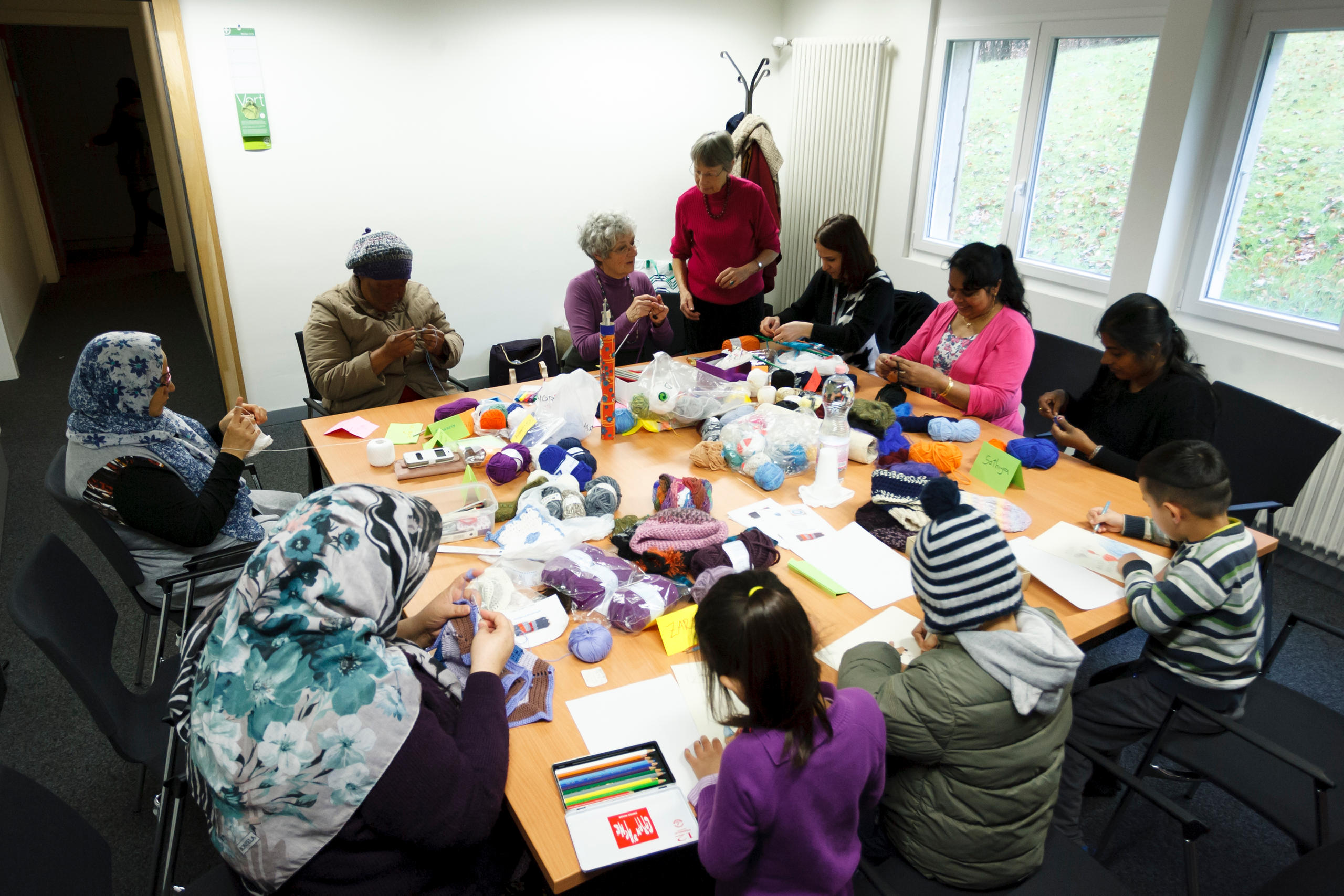
The population of the EVAM refugee centre has also changed. Whereas at the time of tension there were many young, single men residing there for longer periods, the focus of the centre now is on activities to help integration during an initial, limited period, and it has many more women and children. The people of Bex are invited to come to regular get-togethers in the centre with its residents, organized by refugee support group GAR.
“One of the goals of our founders was to bring the people of Bex and the residents of the centre together, so that there is recognition, and support,” says GAR president Rohrbach. She says the association, which has been going for 35 years, is currently very active and has lots of members from within the local community.

In compliance with the JTI standards
More: SWI swissinfo.ch certified by the Journalism Trust Initiative









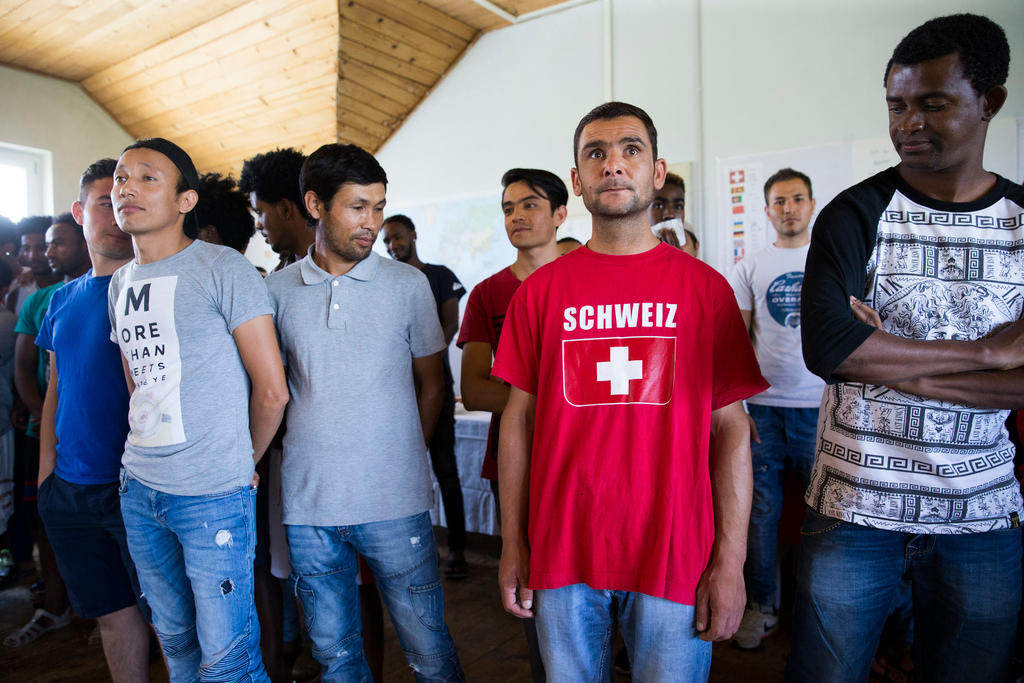

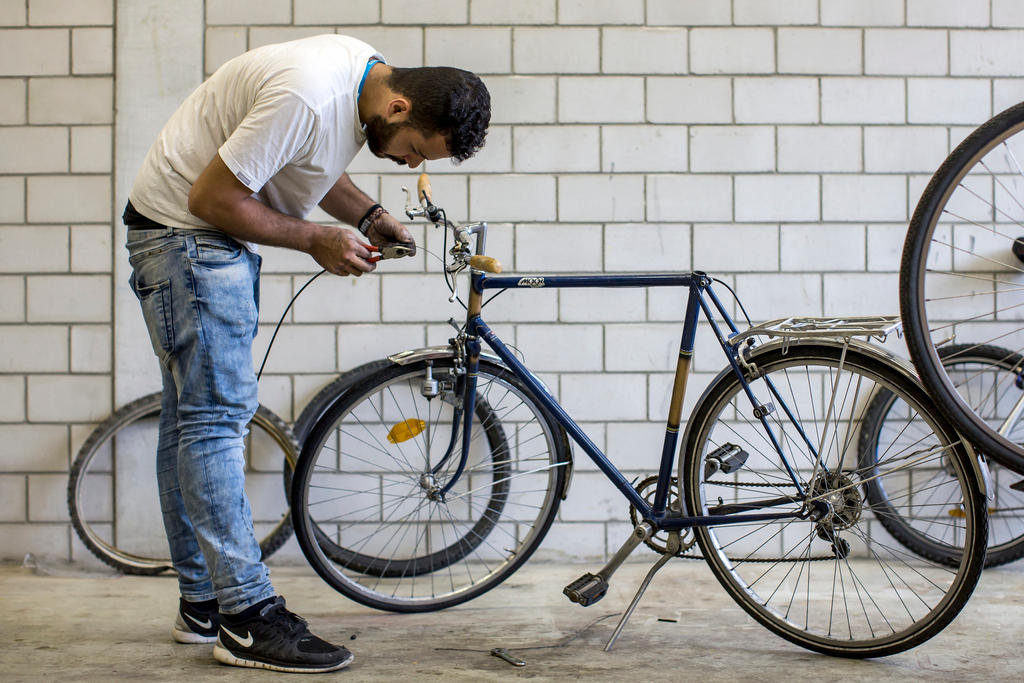
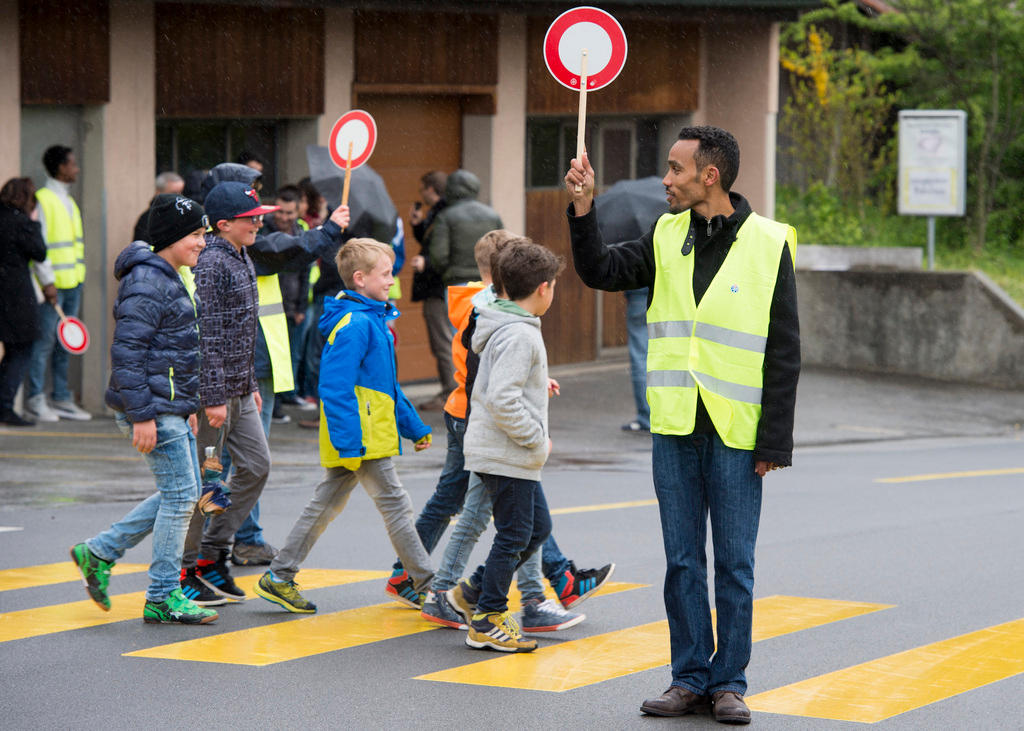




You can find an overview of ongoing debates with our journalists here . Please join us!
If you want to start a conversation about a topic raised in this article or want to report factual errors, email us at english@swissinfo.ch.